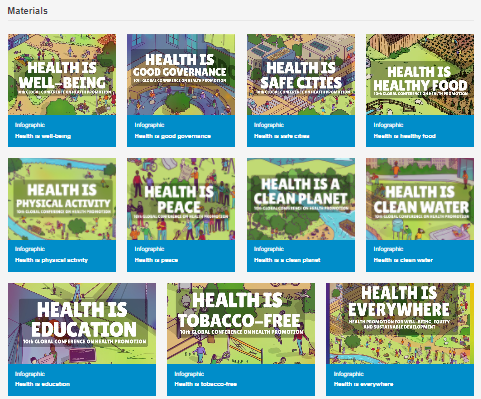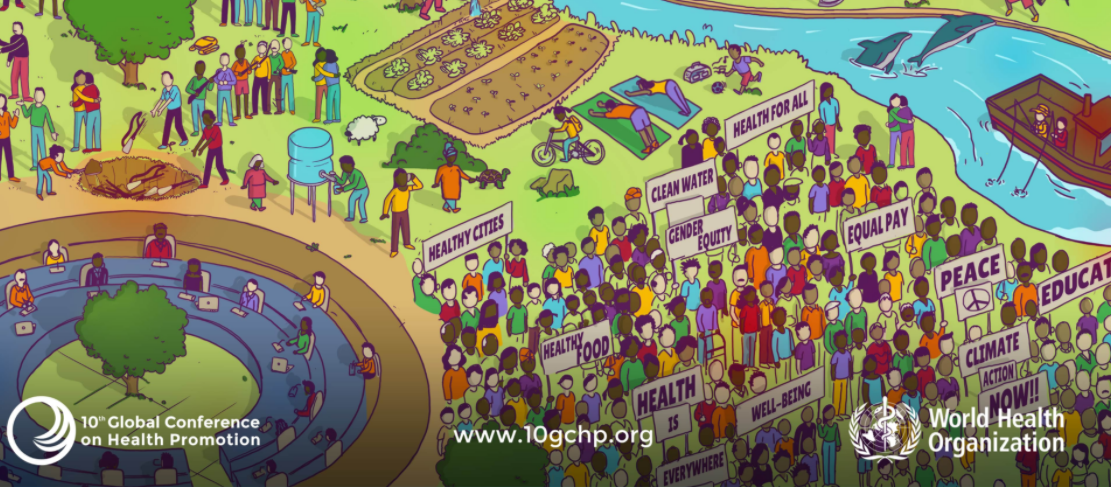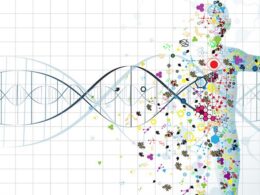Key messages:
First, remember that health is part of a larger ecosystem that encompasses environmental, social, economic, and political factors.
Second, at the core of all of our efforts must be universal health coverage, based on strong primary health care, which is the cornerstone of social, economic and political stability.
And third, let’s rethink the narrative around health, not as a cost, but as an investment in our common future.
Monday, 13 December 2021
Excellencies, distinguished participants, dear colleagues and friends,
It is a great pleasure for me to welcome you to the 10th Global Conference on Health Promotion.
Today, we also celebrate the 35th anniversary of the Ottawa Charter for Health Promotion and the 10th anniversary of the Political Declaration on the Social Determinants of Health adopted in Rio de Janeiro.
The theme of this year’s conference is well-being, equity and sustainable development.
The Constitution of WHO, written more than 70 years ago in the aftermath of the Second World War, famously affirms that “health is a state of complete physical, mental and social well-being and not merely the absence of disease or infirmity”.
What does that mean?
It means that health does not begin in a hospital or clinic. It begins in our homes and communities, with the food we eat and the water we drink, the air we breathe, in our schools and our workplaces.
Since then, that affirmation has been reinforced by the commitment to “Health for All” at the Alma-Ata Conference of 1978, the Astana Declaration in 2018, and most recently by the High-Level Political Declaration on Universal Health Coverage, made at the UN General Assembly just two years ago.
And of course, the Sustainable Development Goals, adopted by the nations of the world in 2015, offer a sweeping vision for people, planet, prosperity, peace and partnership. And while the 17 Global Goals themselves are separate, they are integrated and indivisible.
While the world has made progress towards these lofty goals, it is not nearly sufficient.
There remain unacceptable gaps within and between countries. The COVID-19 pandemic has exposed these inequities.
Over the last two years, the COVID-19 pandemic has touched all of our lives, disrupting societies and economies, lives and livelihoods.
Many people may feel that they are no longer in control of their health, and that they face an increasingly uncertain future.
Beyond the terrible impact of COVID-19 itself, the pandemic has led to disruptions in essential health services that has hindered efforts to tackle many other diseases and conditions, from malaria to maternal health, from rare diseases to diabetes, non-communicable diseases and mental disorders.
Existing inequities and inequalities have been exacerbated, with millions more thrown into poverty, many months of education lost, and uncounted increases in physical and emotional stress.
The pandemic has shown that when health is at risk, everything is at risk.
But the opposite is also true: when health is protected and promoted, individuals, families, communities, economies and nations can thrive.
That’s why health must not be seen as a cost, but as an investment in productive, resilient and inclusive societies.
Achieving Health for All demands that we reach beyond the health sector. It demands an all-of-government, all-of-society approach, including economics and finance, infrastructure and housing, transportation, energy and environment.
We have to fundamentally change the way that leaders in politics, the private sector, and international institutions think about and value health, and to promote growth that is based on health and well-being for people and the planet, for countries in all income levels.
It is time to move away from thinking of health as a component of the economy, and instead look at how the economy can support the societal goal of Health for All, as an investment that is the foundation of productive, resilient and inclusive economies.
Vaccines will help to end the pandemic. But they will not address the vulnerabilities that lie at its root.
Once the pandemic ends, we will be left with even greater challenges than before it started: poverty, hunger, inequality, noncommunicable diseases, climate change and more.
We cannot — we must not — go back to the same exploitative patterns of production and consumption, the same disregard for the planet that sustains all life, the same cycle of panic and neglect, and the same divisive politics that fueled this pandemic.
The pandemic has brought us to a fork in the road.
Behind us lies the path of business as usual — the path that led us to this crisis.
Before us lies a new path: the path that leads to healthier, more resilient, and more sustainable societies.
This conference is an opportunity to progress down that path; an opportunity for meaningful dialogue, sharing experiences, and concrete recommendations on how to best advance well-being.
The Geneva Charter for Well-Being outlines goals for achieving equitable health and social outcomes now and for future generations, within ecological limits.
As you move forward, let me leave you with three priorities:
First, remember that health is part of a larger ecosystem that encompasses environmental, social, economic, and political factors.
Second, at the core of all of our efforts must be universal health coverage, based on strong primary health care, which is the cornerstone of social, economic and political stability.
And third, let’s rethink the narrative around health, not as a cost, but as an investment in our common future.
I thank you, and I wish you a productive conference.
********************************
Media contact: Mediainquiries@who.int and 10GCHP@who.int
Originally published at https://worldhealthorganization.cmail19.com.

About the conference
On 13–15 December 2021, WHO will hold the 10th Global Conference on Health Promotion. The virtual conference is organized by the World Health Organization (WHO) with the support of the United Arab Emirates, United Nations agencies and partners. It will mark the first time that WHO has used well-being as the theme of a major conference. Discussions will focus on the contributions that health promotion can make to well-being in the broad areas of people, the planet and prosperity, culminating in a high-level political statement recommending how governments can use health promotion to advance well-being.
The conference objectives are to:
- discuss how to extend health promotion to advance well-being and equity, building on evidence and experience, to foster healthier populations.
- identify realistic interventions for health promotion and well-being to accelerate progress in achieving the SDGs.
- emphasize the role of health promotion in public health emergency preparedness and response, and seize opportunities to build healthier, fairer societies.
- explore innovative health promotion approaches to enable societies and communities to flourish.
What is health promotion?
Health promotion is the process of enabling people to take control over and improve their health and its determinants. Health promotion is about creating the conditions and conducive environment for healthy choices for all and where people live, work, age and play.
The Conference will address how health promotion can contribute to creating flourishing and well-being societies through health-conscious citizens, community engagement and health-oriented public policies and programmes.
Why is well-being important?
The COVID-19 pandemic has clearly revealed the danger of not considering health in all policies.
The aim of a well-being agenda is to create social, health, economic and environmental conditions that improve both individual and collective quality of life and give people and societies a sense of meaning and purpose. A focus on well-being includes ensuring equitable distribution of resources, thriving and sustainability and societies that are resilient, build capacity and are prepared to overcome challenges.
Why is the conference necessary?
Climate change, inequities, conflict and stalled mortality trends have been exacerbated by the COVID-19 pandemic. Countries that have prioritized social development — health, education, infrastructure, technology and governance — have been better able to withstand the socioeconomic fall-out from the pandemic. Those that are prepared to put their economies in the service of societal well-being have been better able to mitigate the health, economic and social challenges.
Many of the challenges the world faces today are rooted in economic and development models that focus almost exclusively on increasing economic growth as a proxy for the progress of humanity. Only recently has serious effort been put into designing policies to counteract the unintended consequences including ecological damage, climate change, social exclusion and disparities in and access to essential public services and commodities.
Well-being economies are integrative, with production and consumption systems in the broader biosphere. They are also empowering, allowing more direct citizen action and control rather than limiting their role to passive consumers or patients. A well-being economy puts the economy at the service of health, social and ecological outcomes. Societies with well-being economies are resilient, build capacity for action and are prepared to overcome challenges.
Acknowledging the achievements in health promotion since the first global conference in Ottawa, Canada, in 1986 and shaping an agenda for well-being, equity and sustainable development this conference will pave the way for a continuous commitment towards well-being societies for all.













